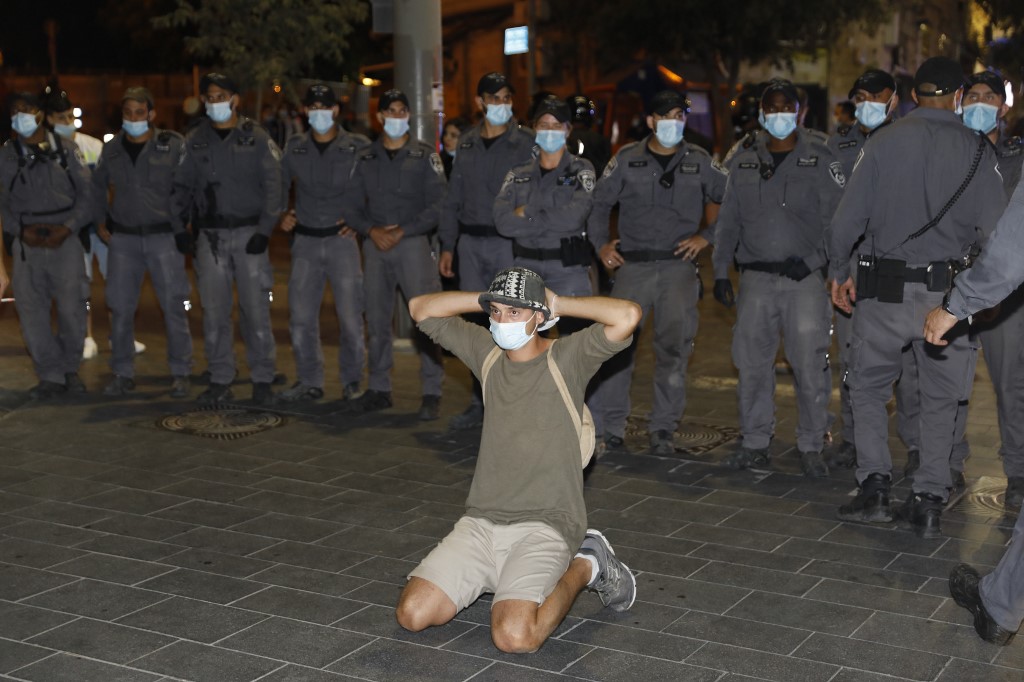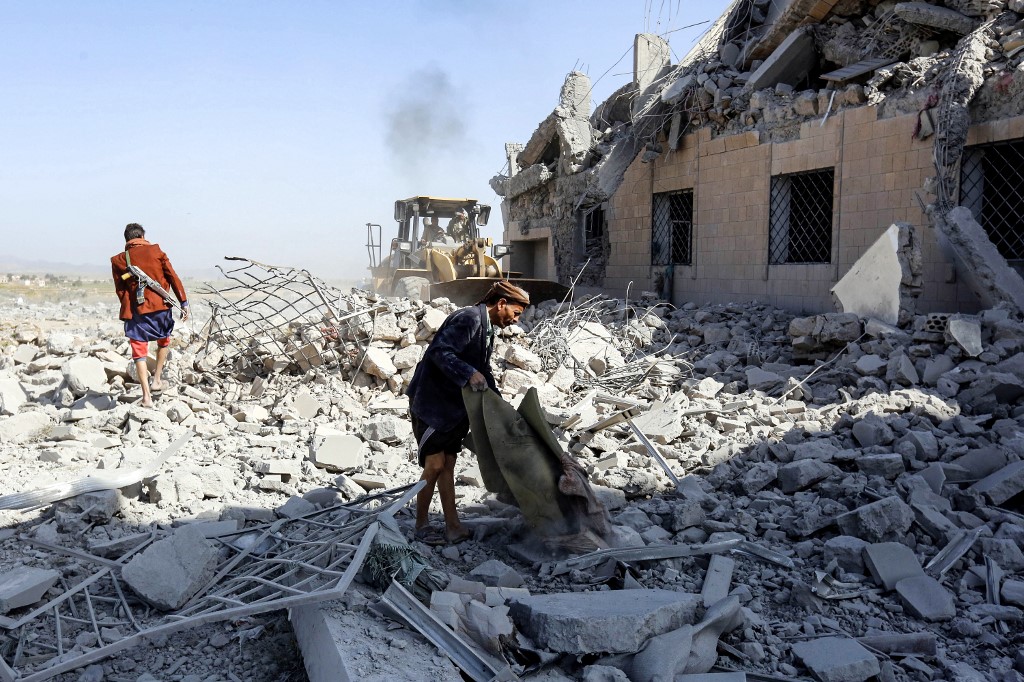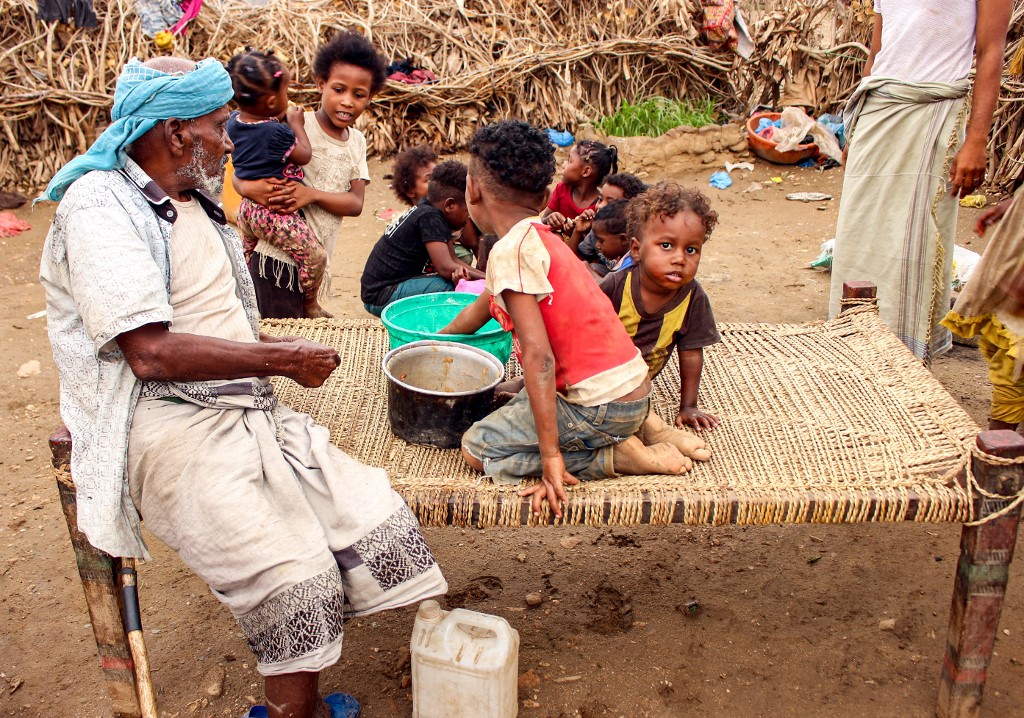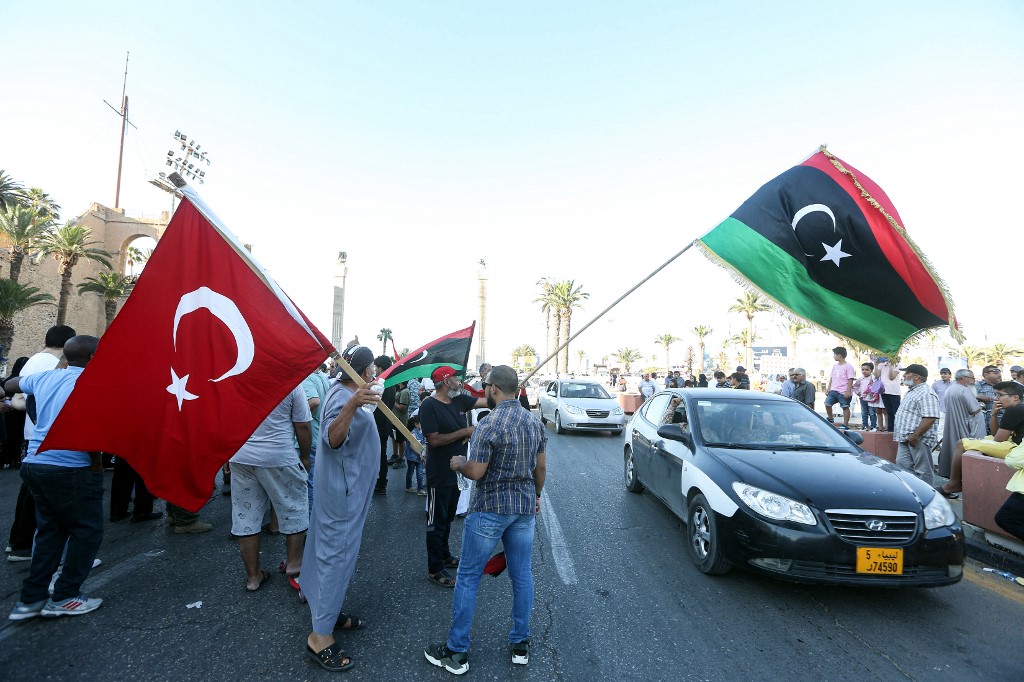BILLY BARR'S BULLY BOYS SOCIAL DISTANCE FROM PORTLAND
Issued on: 30/07/2020 -


Federal law enforcement officers, deployed under the Trump administration's new executive order, face off with people protesting racial inequality in Portland, Oregon, US on July 17, 2020. REUTERS - Nathan Howard
Text by:NEWS WIRES
President Donald Trump's administration on Wednesday agreed to a deal to defuse weeks of clashes in the US city of Portland with the withdrawal of federal forces whose presence enraged protesters, but the timing of the withdrawal remains in dispute.
Oregon Governor Kate Brown said the forces -- whose deployment was seen by many as part of Trump's law-and-order strategy for re-election -- would begin their phased pullout on Thursday.
Acting Homeland Security Secretary Chad Wolf indicated, however, that the officers will withdraw only if there are guarantees that local police can ensure the federal courthouse will be secured.
Trump's administration earlier this month sent the federal tactical teams, many wearing combat-like gear, to intervene in the western US city after weeks of protests against racism and police brutality left the federal courthouse and other buildings marred with graffiti and broken windows.
But their deployment only served to inflame the situation, especially following video footage of protesters being snatched off the street by federal forces and put into unmarked cars.
"After my discussions with (Vice President Mike) Pence and others, the federal government has agreed to withdraw federal officers from Portland," Brown tweeted Wednesday.
"They have acted as an occupying force & brought violence. Starting tomorrow, all Customs and Border Protection & ICE officers will leave downtown Portland."
After my discussions with VP Pence and others, the federal government has agreed to withdraw federal officers from Portland. They have acted as an occupying force & brought violence. Starting tomorrow, all Customs and Border Protection & ICE officers will leave downtown Portland.— Governor Kate Brown (@OregonGovBrown) July 29, 2020
In his statement, Wolf said he and Brown had "agreed to a joint plan to end the violent activity in Portland directed at federal properties and law enforcement officers."
'Increased violence and vandalism'
"That plan includes a robust presence of Oregon State Police in downtown Portland," he said, adding that "state and local law enforcement will begin securing properties and streets, especially those surrounding federal properties, that have been under nightly attack."
Wolf set no timeline for a pullout, stressing that the "current, augmented federal law enforcement personnel in Portland" would remain until being assured that federal properties "will no longer be attacked" in the city.
Trump for his part doubled down on the need for federal intervention in the city, threatening to send in the National Guard if the violence continues and calling the protesters anarchists.
"I told my people a little while ago, if they don't solve that problem locally very soon, we're going to send in the National Guard and get it solved very quickly, just like we did in Minneapolis and just like we will do in other places," he told an energy conference in Texas.
"They want to solve their problem. They've got a very short time to do it. But they'll either solve that problem or we'll send in the National Guard," he added.
In parallel with the contested crackdown in Portland, the administration has sent federal agents to supplement local law enforcement in several US cities facing a rise in gun crime such as Chicago, Kansas City and Albuquerque -- compounding public anger over the situation in Portland.
Wednesday's announcement on Portland came as Trump's administration said it was expanding the controversial "surge" of federal agents to three more US cities -- Cleveland, Detroit and Milwaukee.
In a statement, Barr said all three Democratic-run cities "have seen disturbing increases in violent crime, particularly homicides."
As part of so-called "Operation Legend," just under 100 agents will head to the three Great Lakes cities, according to the Justice Department, which said homicides were up 13 percent in Cleveland, 31 percent in Detroit and 85 percent in Milwaukee since the start of the year
The announcement on Portland came a day after officials in the neighboring state of Washington said that federal police sent to the city of Seattle last week had left the area.
Portland's Mayor Ted Wheeler welcomed the withdrawal of the officers from his city, tweeting Wednesday that their presence had sown fear in the community.
"Federal agents nearly killed a demonstrator, and their presence has led to increased violence and vandalism in our downtown core," he said.
"The Governor and I agree: Oregon resources, expertise, and values are sufficient to manage Oregon issues," he added.
(AFP)





 A protester kneels next to police in Jerusalem on 14 July (AFP)
A protester kneels next to police in Jerusalem on 14 July (AFP)


 People inspect the rubble of a building hit by an air strike of the Saudi-led coalition south of Sanaa in September 2019 (AFP)
People inspect the rubble of a building hit by an air strike of the Saudi-led coalition south of Sanaa in September 2019 (AFP)


 Yemenis shelter at a makeshift camp for displaced people in Hajjah province in August 2019 (AFP)
Yemenis shelter at a makeshift camp for displaced people in Hajjah province in August 2019 (AFP)


 People wave Libyan and Turkish flags during a demonstration in Tripoli on 21 June (AFP)
People wave Libyan and Turkish flags during a demonstration in Tripoli on 21 June (AFP)


 Qaboul Mabkhout Marzouq, 11, lies on a stretcher at a hospital in Sanaa after she was injured in an air strike in the northern province of al-Jawf, Yemen on 15 July (Reuters)
Qaboul Mabkhout Marzouq, 11, lies on a stretcher at a hospital in Sanaa after she was injured in an air strike in the northern province of al-Jawf, Yemen on 15 July (Reuters)

